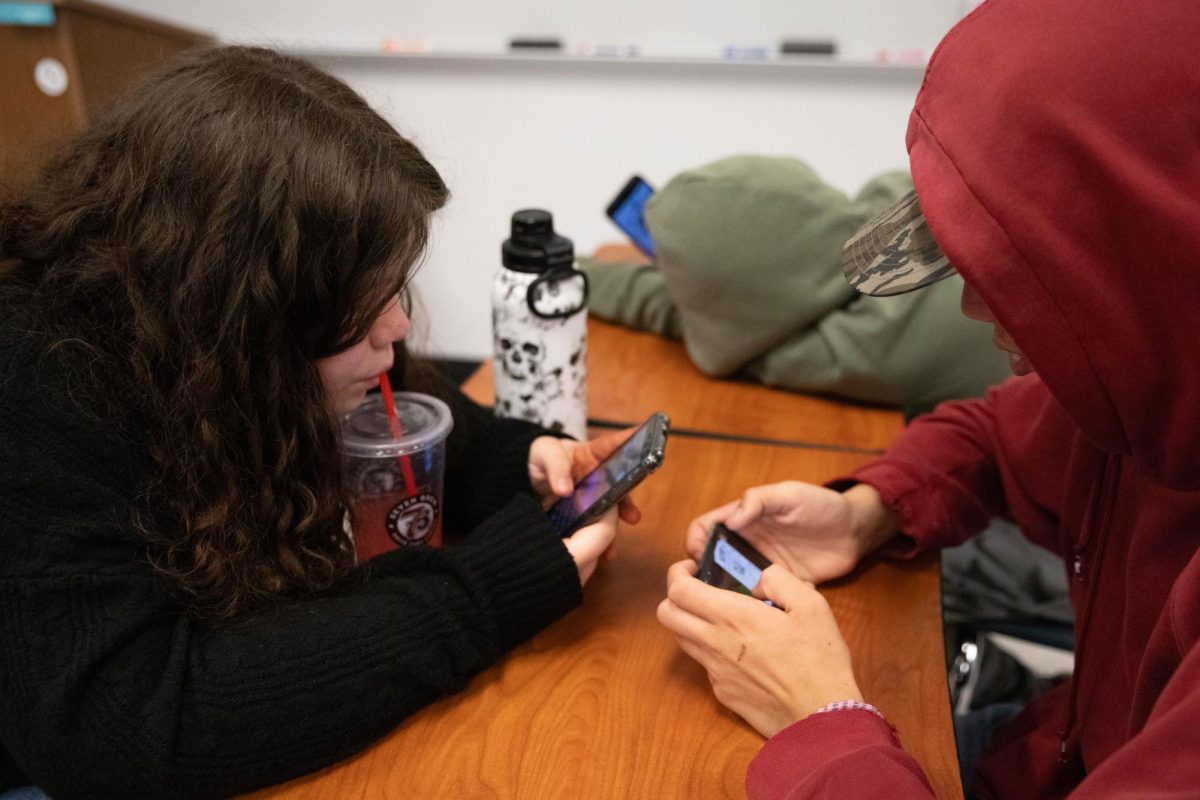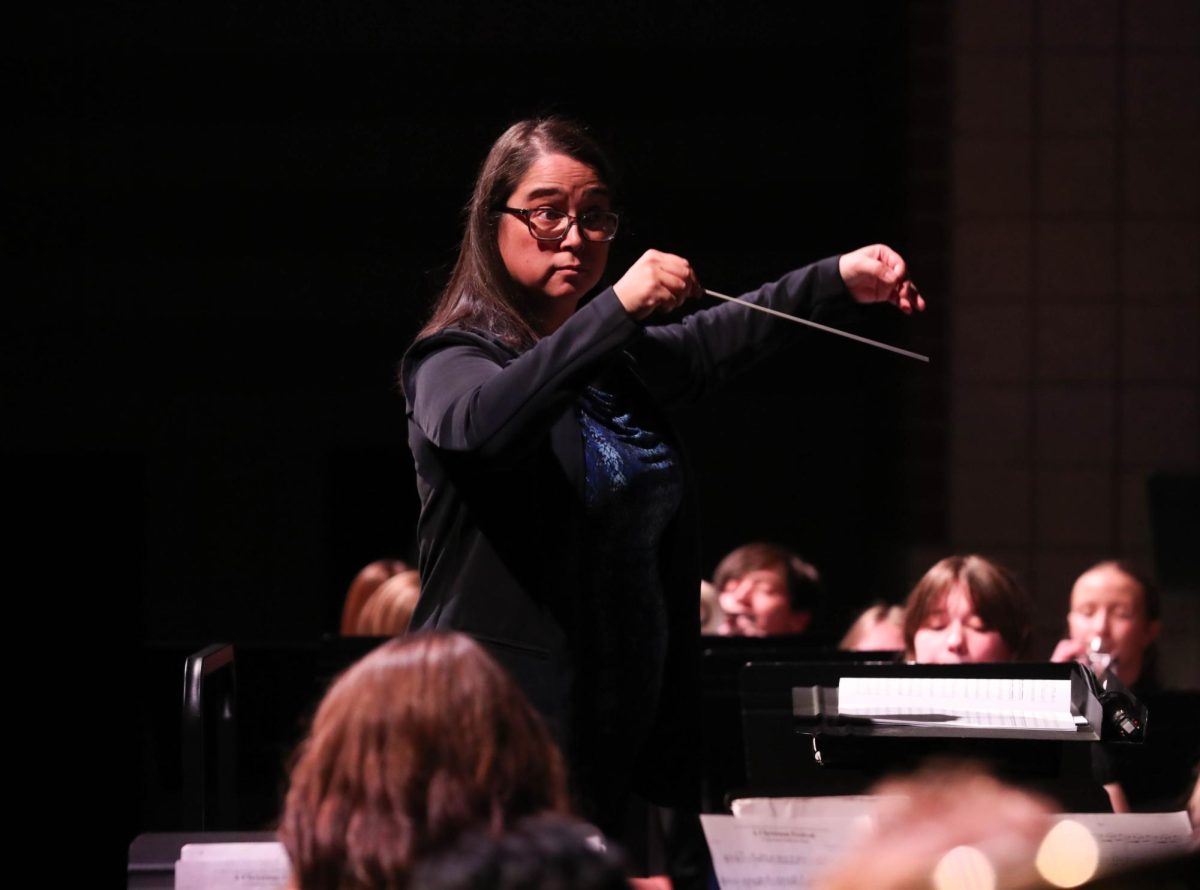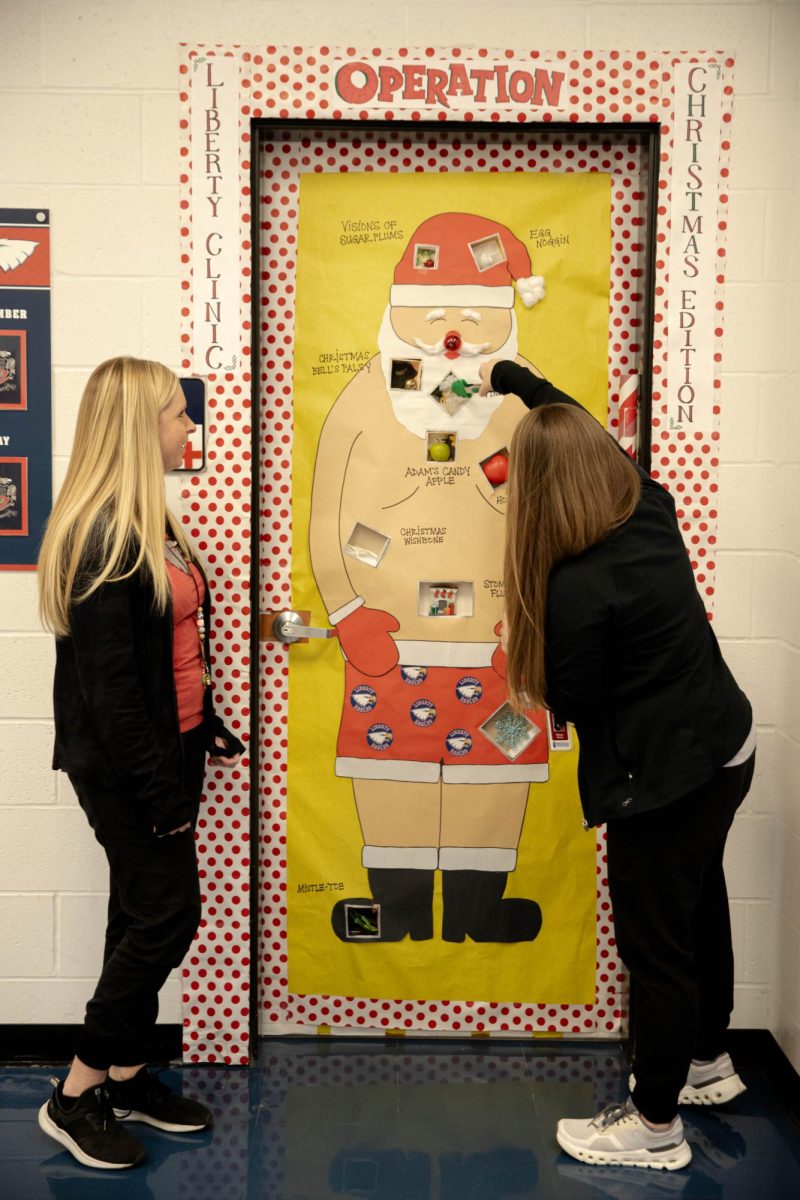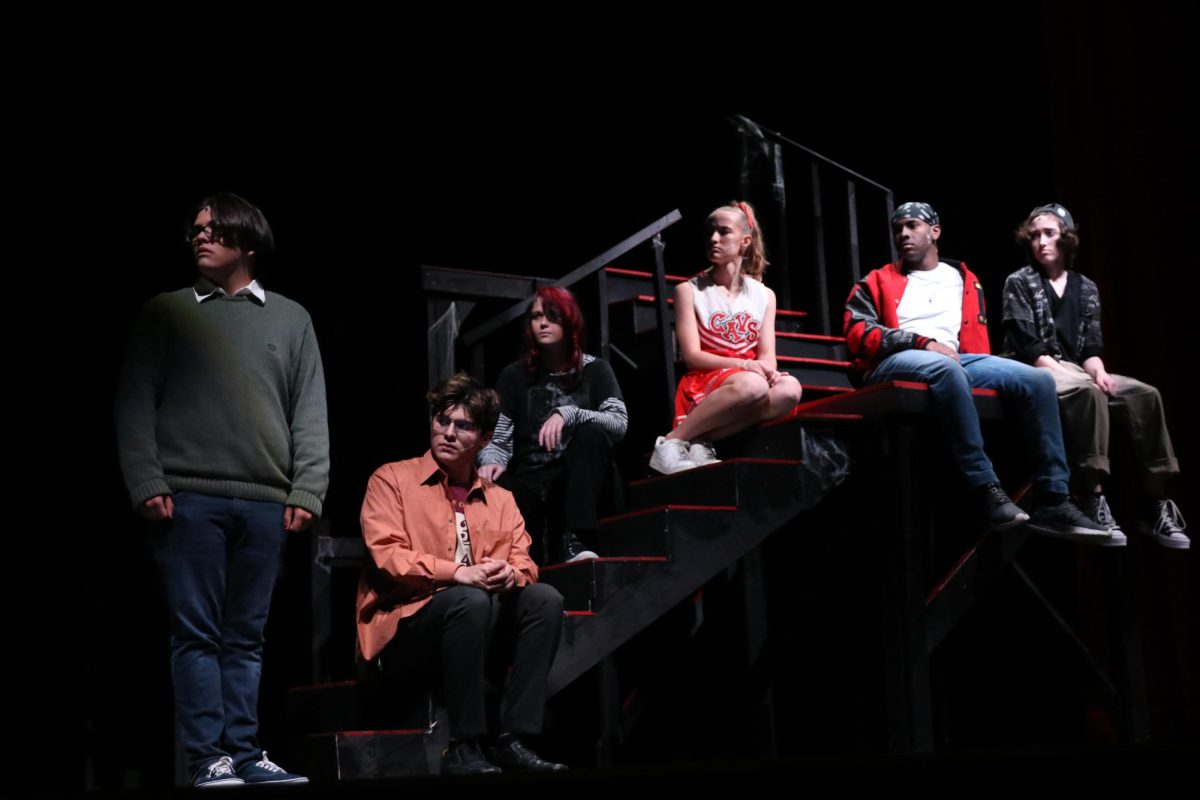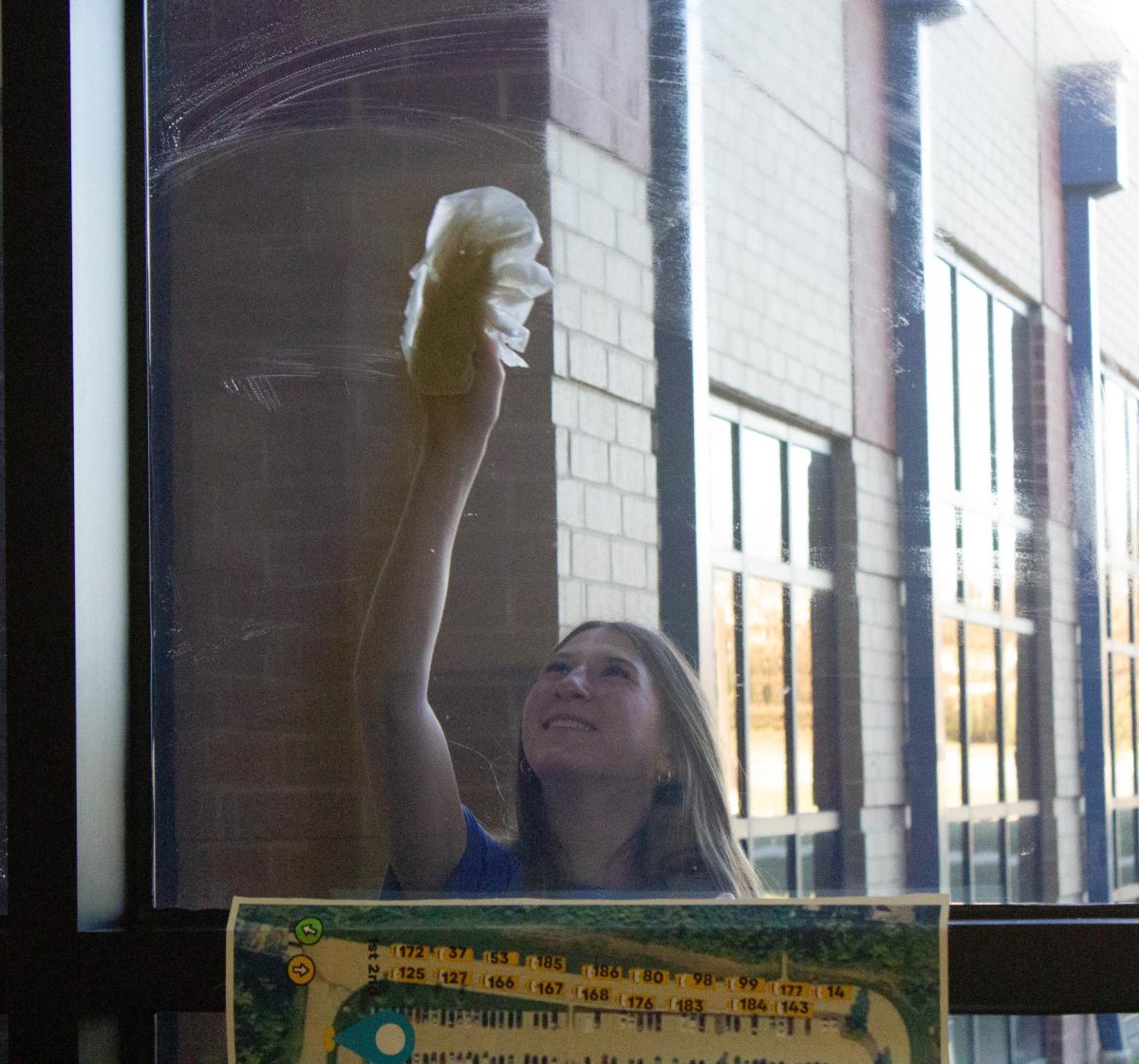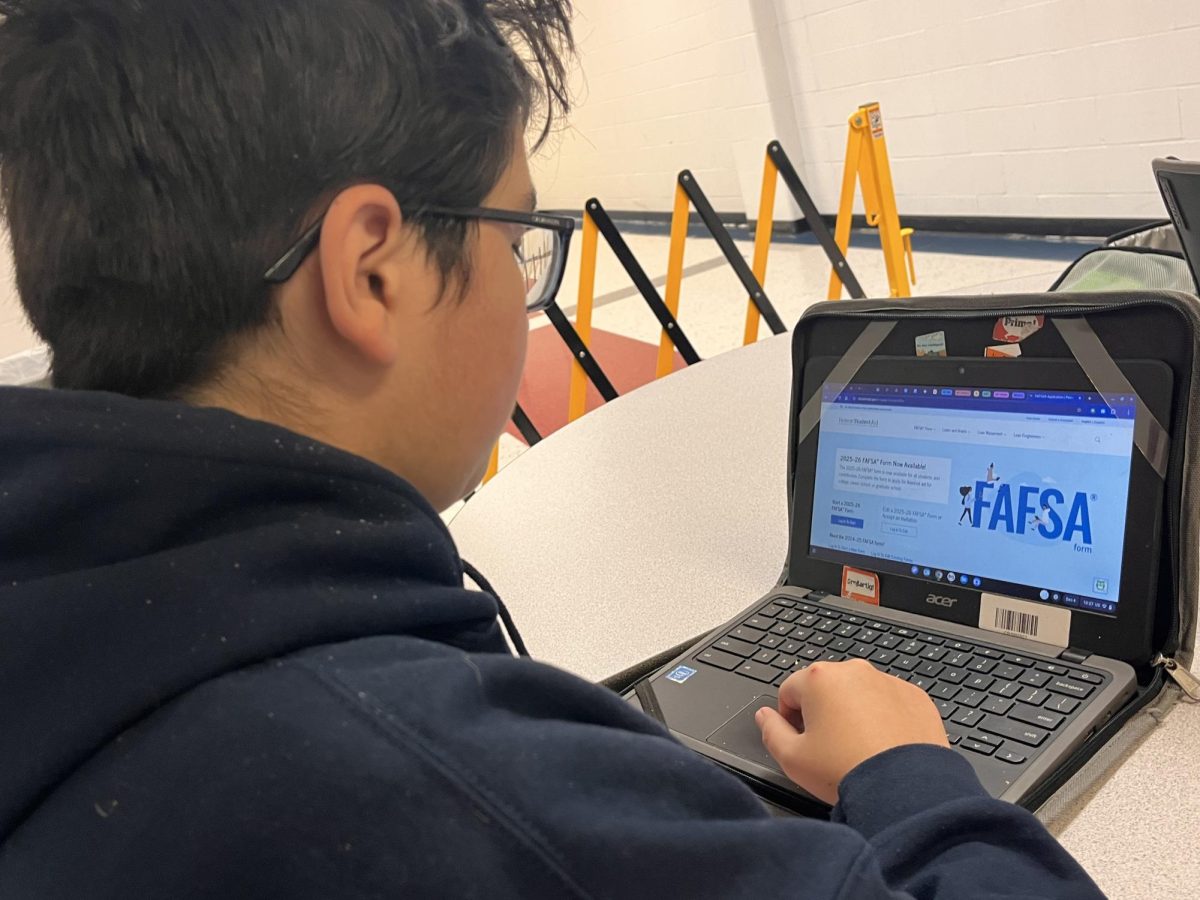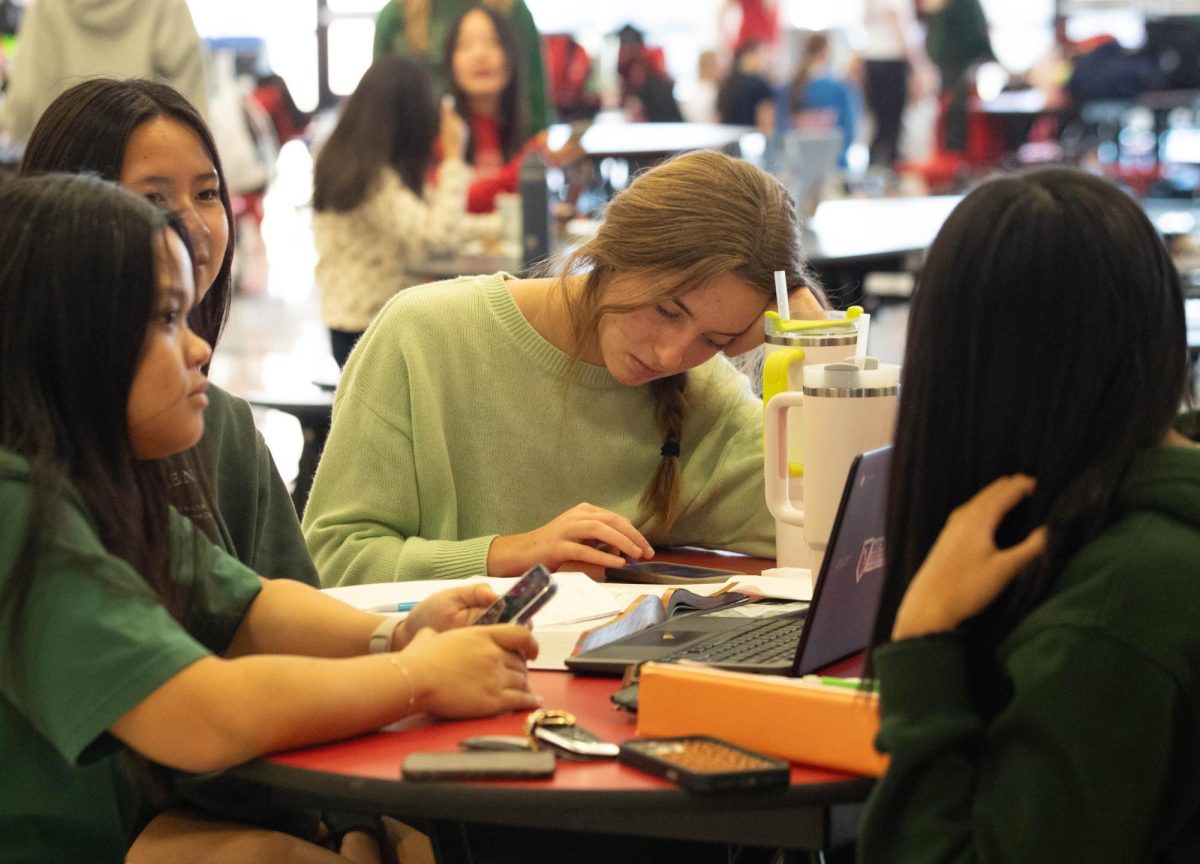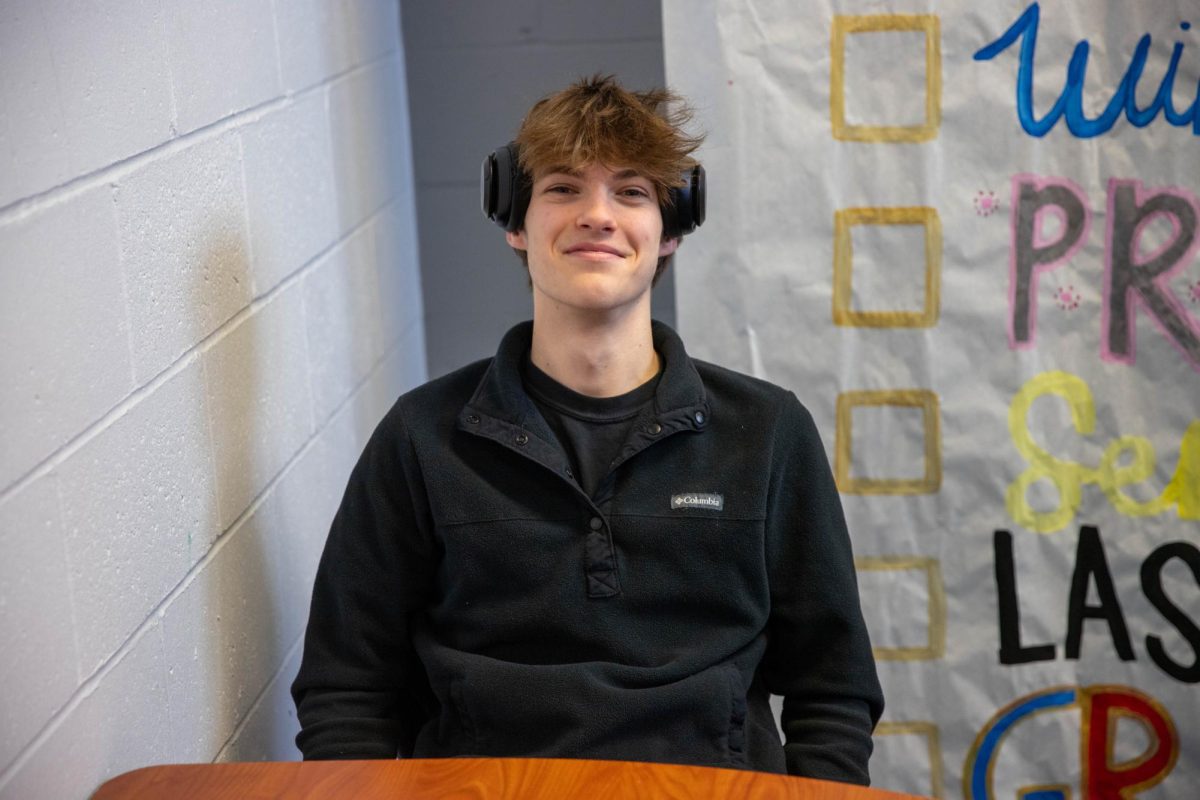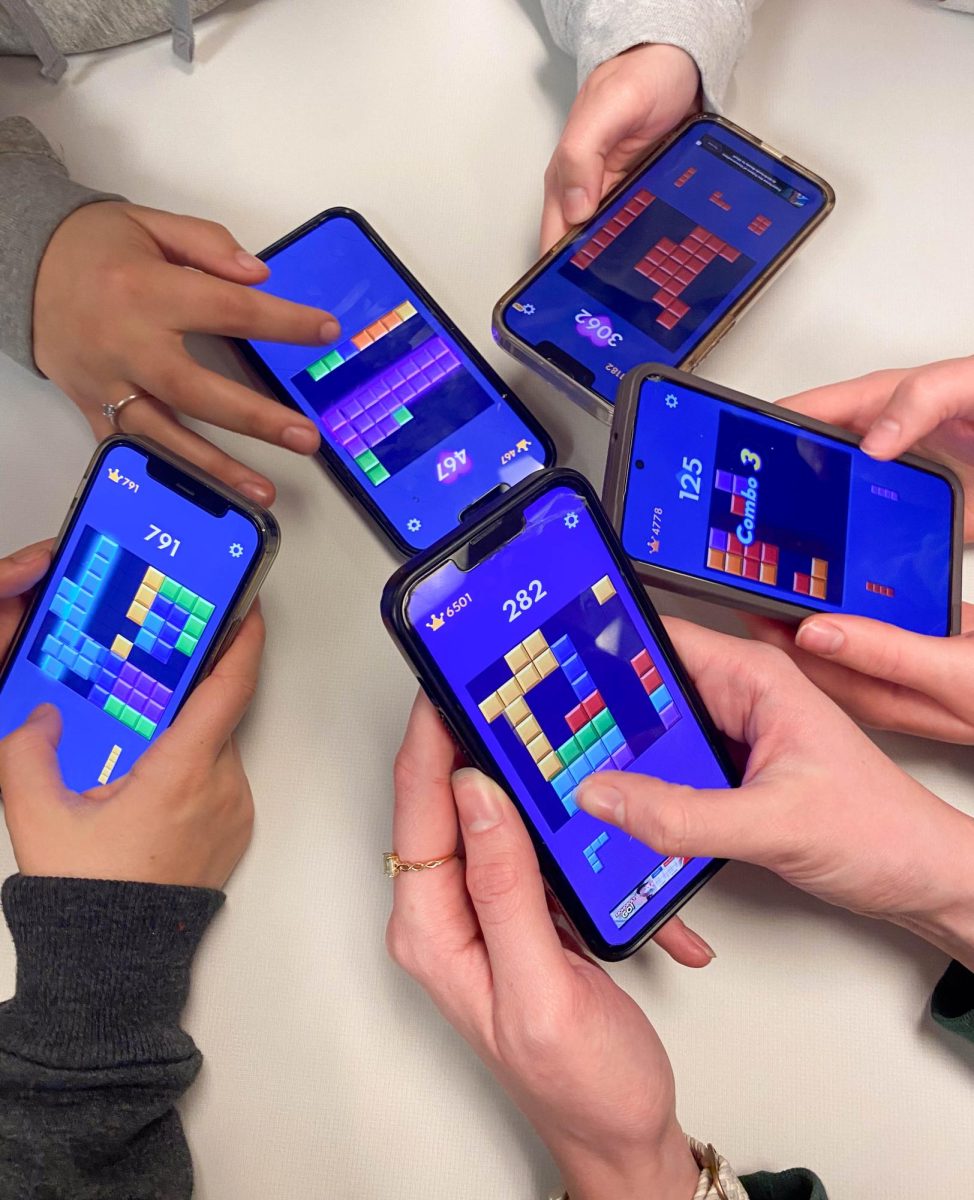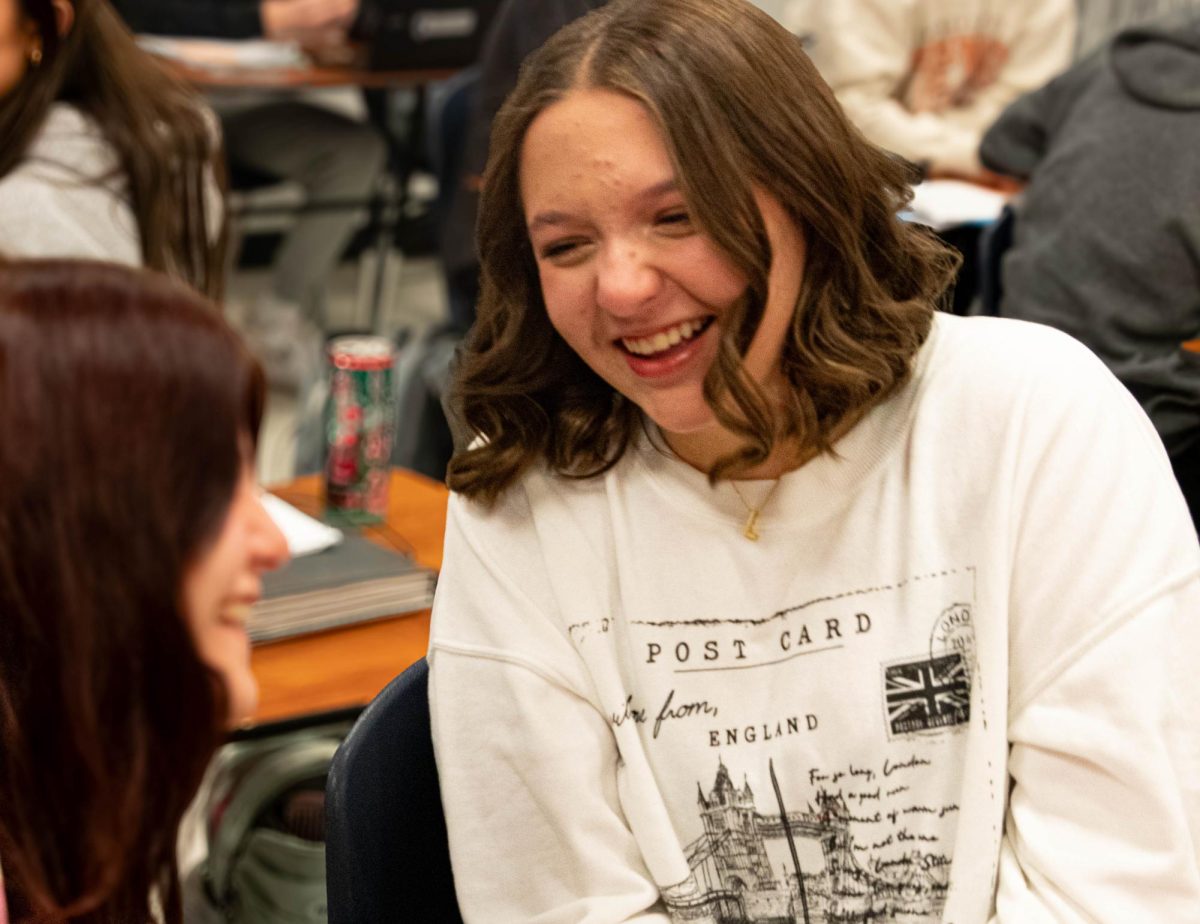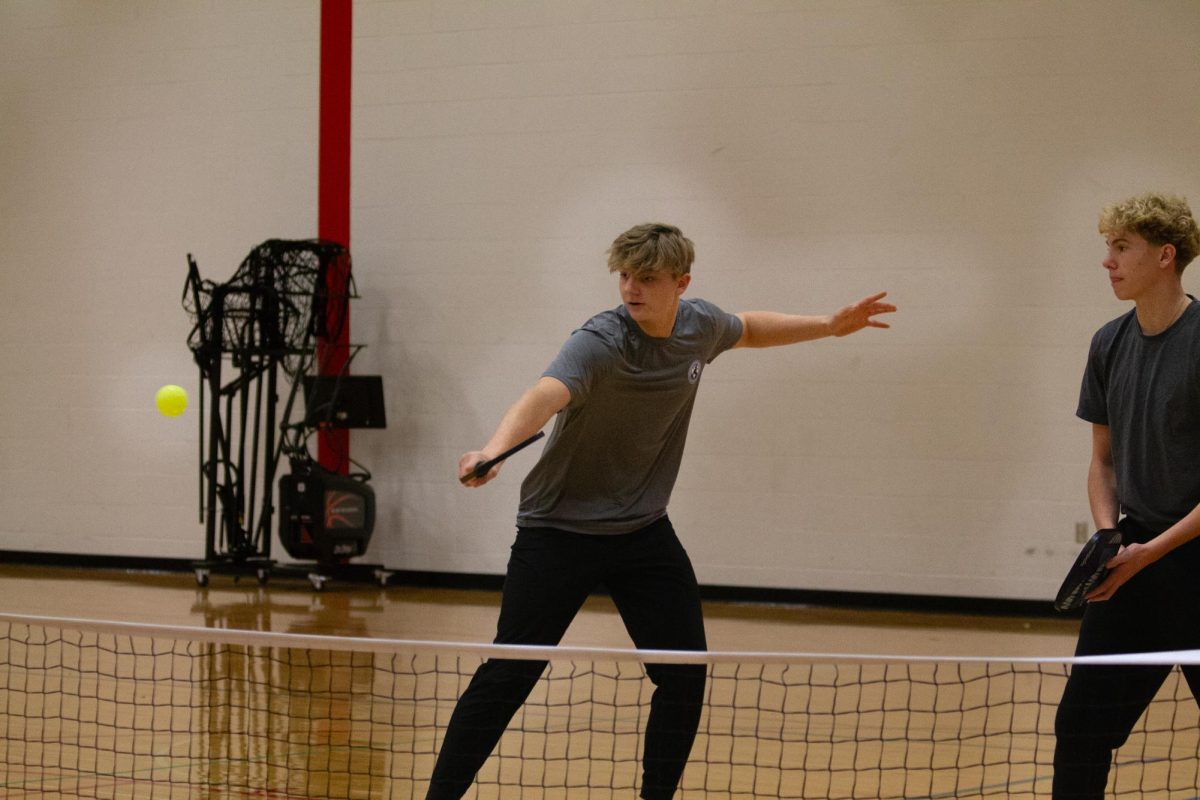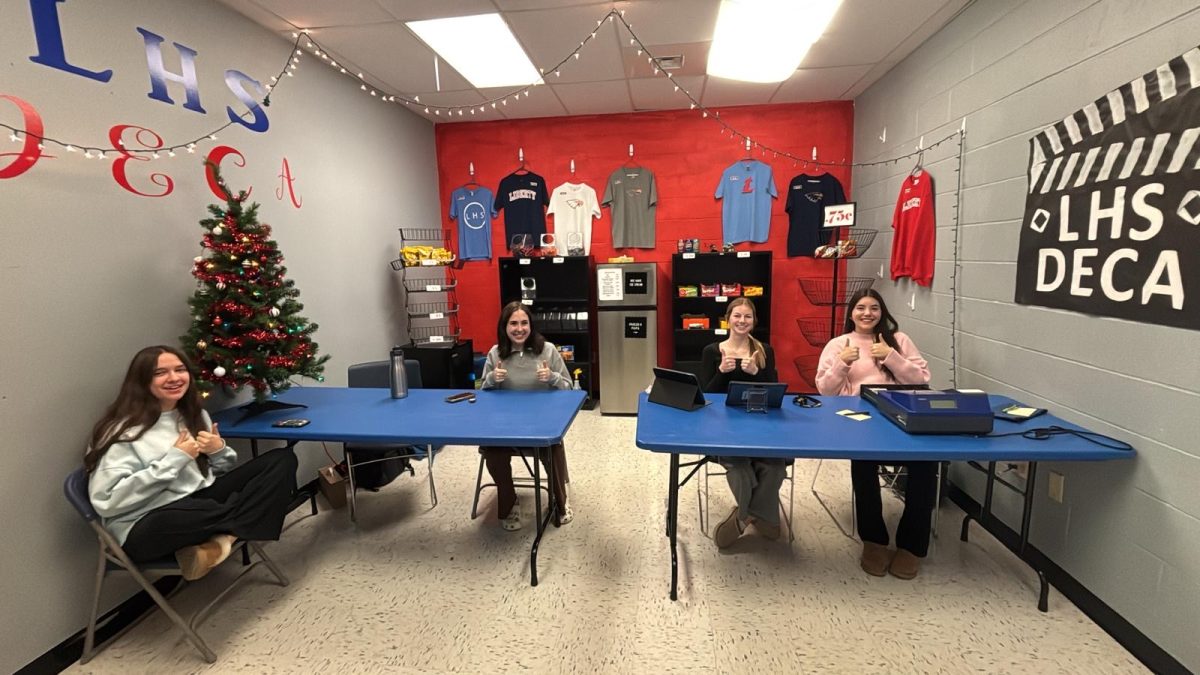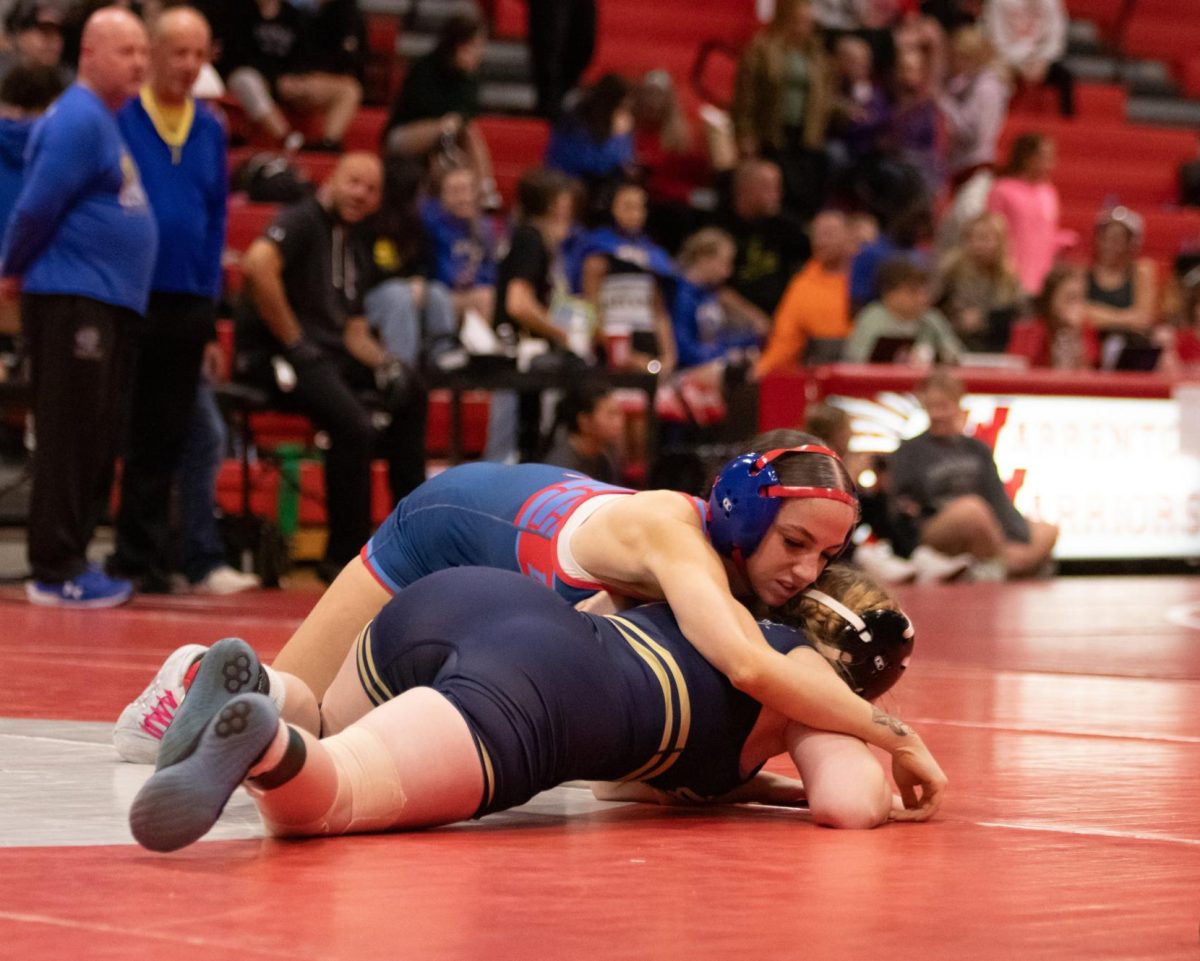When it comes to phones, school, and teenagers, the idea of restricting screen usage has students shouting from the rooftops.
Liberty, along with three other high schools in the district, reworked guidelines pertaining to no phones in the classroom two years ago.
“We had [a previous] policy for students not using cell phones, but it wasn’t very strong,” Principal, Ed Nelson said. “So the teachers were frustrated.”
The phone policy aims to give students the first push in being responsible for their schooling. Nelson thinks that students are more willing to put down the phone when everyone else must as well. Being forced to put away the screen has caused kids to be more focused, engaged, on task, and involved.
”It has reminded students and parents of the reason why we have school, which is to get involved and learn new things and you cannot do that when your face is glued to your screen,” Teacher, Angela Pieper said.
While Nelson believes that there isn’t a single downside to the policy, teacher Ryan Barnes expresses sadness that kids cannot regulate themselves. Barnes says he treats his students like adults and they respect him.
Many students have said that the phone policy is ridiculous and will just cause kids to be more sneaky.
When questioned about the students’ reaction to phone restrictions, Nelson was straight forward.
“I don’t care what the kids think about it,” Nelson said. “adults have to be the adults sometimes.”
What Nelson means by this is that kids don’t always know or understand what is best for themselves in the long run. Pieper seconds the idea that students cannot manage their devices responsibly. Liberty has seen the benefits of no electronics.
“Now student engagement is up, grades are going up, and school is becoming more fun because the level of involvement has gone up,” Peiper said.
Not only has improvement been seen within the classroom, but the students are realizing more fully the consequences of their actions. Originally, detentions for violating school rules would be held during lunch. Nowadays, detentions are held after school.
“Last year [the consequence] was during power lunch and kids didn’t care one way or another,” Nelson said. “Once we start stealing their free time, and they have to miss other activities, they may be more apt to go along.”
While kids may feel the phone policy is a modern form of torture, in the end it may be helping students focus.
“It reduces distractions in the classroom and eliminates one distraction from the countless distractions kids have,” Barnes said.



